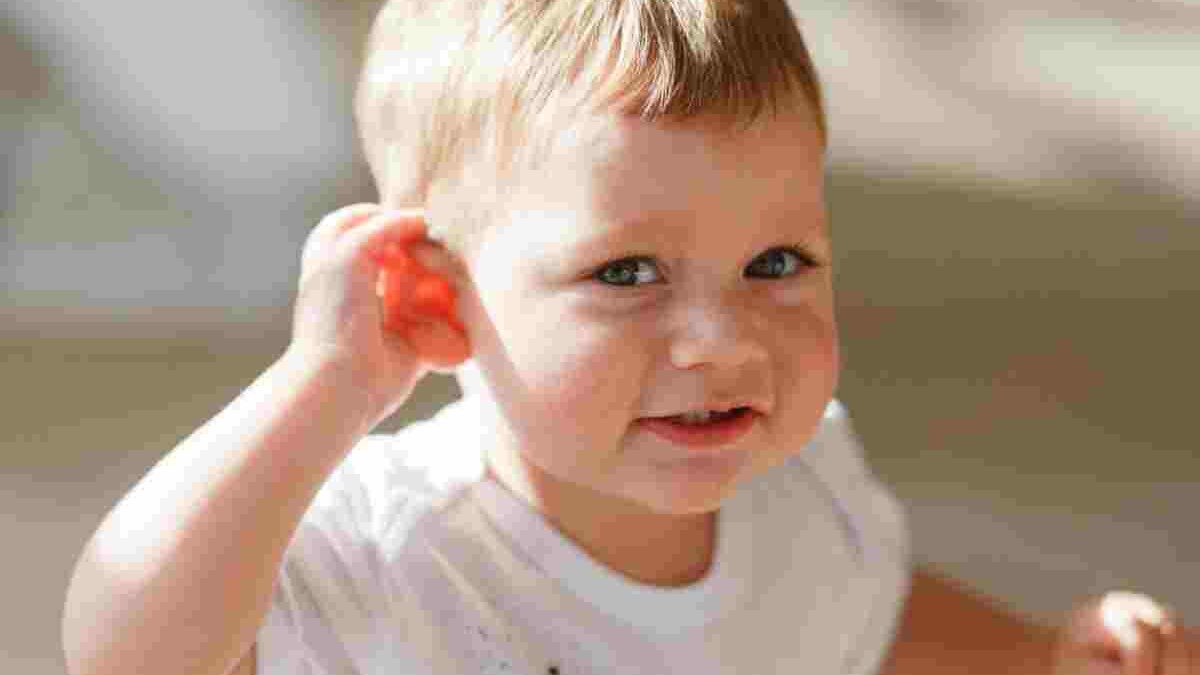Table of Contents
Babies Rub Ear and Side of Head
If your babies rub ears but does not appear to be in pain or discomfort, they are likely trying to soothe herself.
They might be able to self-soothe and feel comforted by touching their ear or head because babies enjoy routines and familiar objects (including their body parts). It may be particularly the case if he is worn out or overburdened. If you believe this to be the case, consider giving her a pacifier or calming toy to help her relax.
An ear infection, teething pain, or even a cold may cause your infant’s other screaming or apparent pain. Check for additional pain indications, like crying, fussiness, or trouble sleeping, if you suspect this may be the case. Always err on caution and send your child to the pediatrician if unsure.
Last but not least, it could indicate that they are overtired or that their ears are wax-blocked. Their ear pulling or clutching is frequently accompanied by frequent yawning or clinginess if they are weary.
Baby Scratching Ears at Night
Swimmer’s Ear: Your infant may have Swimmer’s ear or Otitis externa if you notice him straining, scratching, or tugging at his outer ear. Swimmer’s ear develops when water enters the ear canal following a bath or shower, infecting the lining of the outer ear canal. Another scenario is when cotton swabs are inserted into the ear canal and cause inflammation. The skin’s protective layer begins to degrade quickly, creating the ideal environment for germs to flourish.
Baby Rubbing Ear and Crying
If your baby has an ear infection, it may be rubbing or touching their ears due to the pain they are experiencing. Between 3 months and 3 years, ear infections are most prevalent in infants and toddlers. The poor little scumbags may also receive them more than once. Due to the location of their ear tubes, babies and young children tend to get more ear infections.
Baby Rubbing Ear Teething
When they are teething, babies frequently rub their ears. It is due to the possibility of pressure and pain in the gums and jaw when the teeth begin to erupt, which may radiate to the ears. In addition to ear scratching, baby teething symptoms can include increased drooling, biting or gnawing on objects, and irritability.
If your teething baby seems uncomfortable, reflect on these simple tips:
- You can gently massage the painful or swollen gums of your baby.
- Try using teething rings.
- Another well-known treatment is to touch the gums with a cool spoon gently.
- Ensure that the spoon is not too cold. The fridge should do the trick in 30 minutes!
Why do Babies Pull Ears When Tired?
Since every infant is unique, there is no conclusive response to this query. Unless a baby displays additional symptoms, such as pain or discomfort, there is no reason to be concerned if some babies hold their ears more frequently than others. Speaking with a paediatrician if you have concerns about your baby’s behavior is preferable.
Is It Normal For Babies To Hold Their Ears?
Your kid covering their ears is not unusual, but it often doesn’t raise many concerns. Children frequently engage in it because loud noises or sounds cause them to become overstimulated. Even as adults, we would react to distracting or loud noises the same way as kids.
Baby Grabbing Ear When Feeding
The ears of many infants seem to intrigue them. Babies clutch their ears as soon as they become aware of them, whether during feeding or just before bed, for various reasons.
1) Acute ear infection – If your child has a respiratory illness and a temperature.
2) Teething – if your child is drooling excessively, has flushed cheeks, or has painful gums.
3) Ear wax blockage – if you use cotton buds to wipe your child’s ears.
4) If your infant puts something foreign in their ear.
5) As a method of self-calming, your infant enjoys touching her ears.

